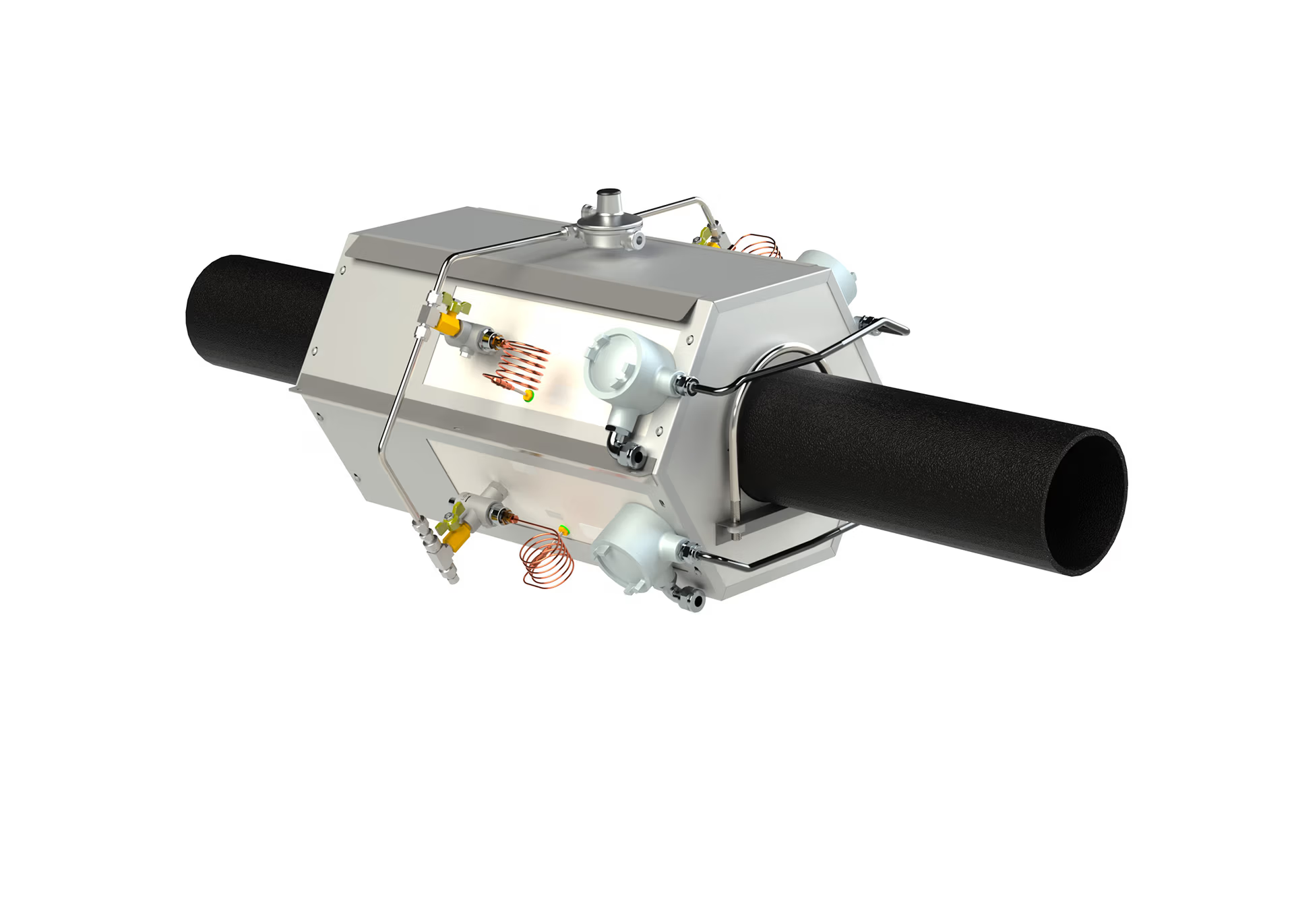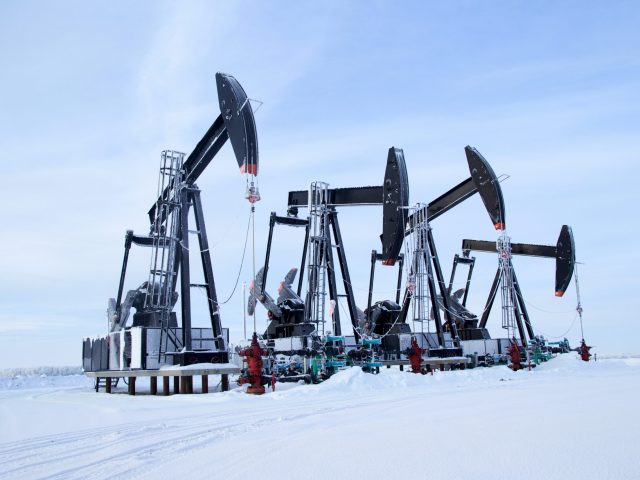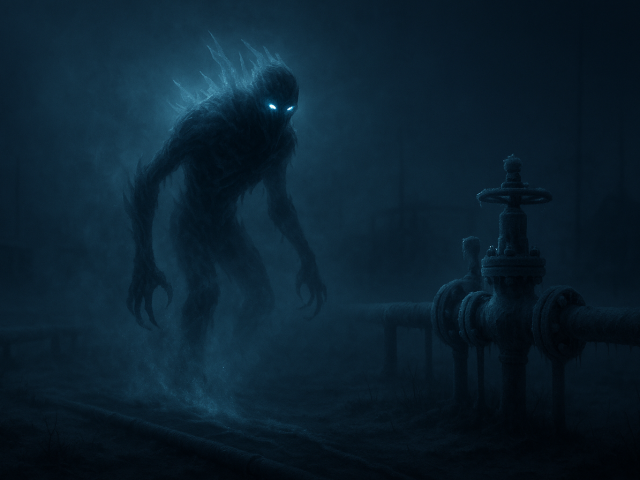Pipeline Packs
Catco Pipeline Packs position one, two, or four catalytic heaters directly adjacent to a pipe to raise the temperature of what’s flowing through it. They’re commonly placed upstream of valves, regulators, chokes, and other equipment to prevent freezing. Pipeline Packs install onto an existing pipe, making them easy to use and highly versatile.
How They Work
Catco catalytic heaters bring fuel and oxygen together in the presence of a heated catalyst. This causes a chemical reaction that produces infrared heat but no flame, and the catalyst is not consumed by the reaction. Once it’s operational, a catalytic heater can operate indefinitely if it has a clean source of fuel and sufficient air.
The operating characteristics of Catco catalytic heaters have made them a safe and effective solution in a variety of industrial applications for decades. They are particularly well suited for use in hazardous areas and remote locations. Catco catalytic heaters can be configured with certification by FM or CSA for use in Class I, Division 1 & 2, Group D areas.
Product Specs
Product specifications for our most common options are listed in the table below. Please see the product bulletin for a complete list of options and full product specifications, or contact us for more information.
| Product Number | Pipe Size | BTU/hr | Installed Length | Starting Amps, 12 V | Starting Amps, 24 V | Starting Amps, 120 V | Starting Amps, 240 V |
|---|---|---|---|---|---|---|---|
| 71-044 | 1″ to 4″ | 3000 or 6000 | 14″ | 8.3 or 16.7 | 4.2 or 8.4 | 0.8 or 1.6 | 0.4 or 0.8 |
| 71-045 | 1″ to 4″ | 6000 or 12,000 | 26″ | 16.7 or 33.3 | 4.2 or 8.4 | 1.9 or 3.8 | 1.9 or 3.8 |
| 71-502 | 1″ to 6″ | 24,000 | 26″ | 33.3 | 8.4 | 3.8 | 3.8 |
Additional Resources
Related Articles
Cold weather doesn’t fail gas systems the same way. Environmental exposure, pressure drops from the Joule-Thomson effect, and reactive winterization each create different failure paths during winter operations.
A quiet night in the field turned into a frozen nightmare by morning. A single regulator froze solid, halting flow and production — a reminder that in the oil and gas world, freeze-ups don’t wait for tomorrow.
At CATCO, energy resilience is the mission. Our goal at PBIOS 2025 is to educate the industry on freeze protection and reliable heating solutions.
Winter freeze-ups put regulators, valves, and meters at risk. Catco heaters and enclosures deliver reliable heat that keeps production and distribution systems flowing.






